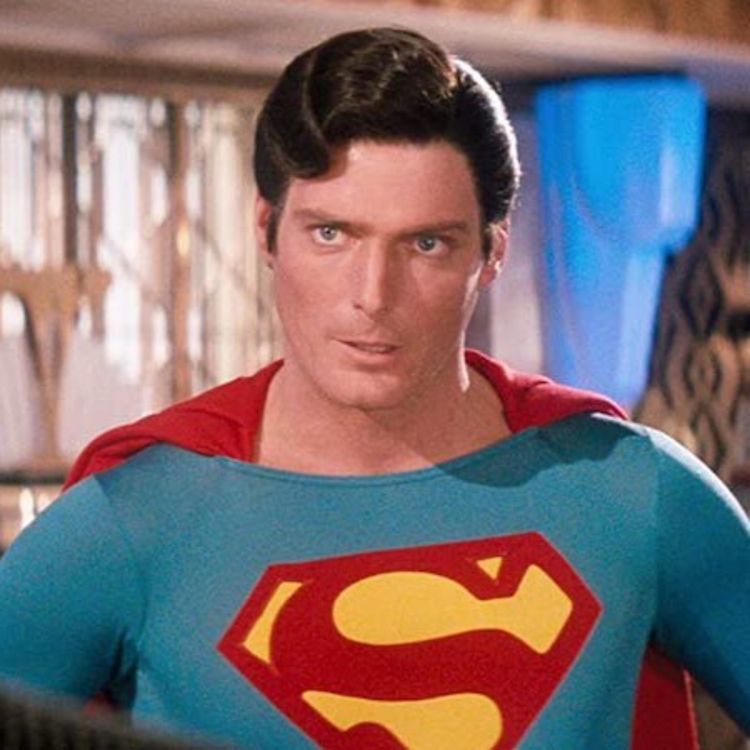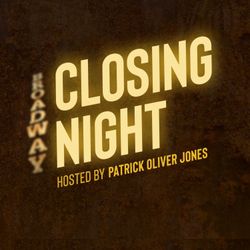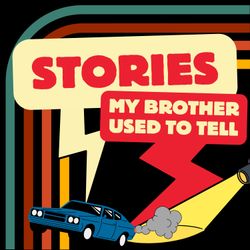Share

The Industry
How Superman IV Became a Disaster: Christopher Reeve's Two-Picture Deal
Season 3, Ep. 5
•
Christopher Reeve came out of Superman retirement to make Superman IV: The Quest for Peace, a film widely considered a disaster.
He had said in 1983, after the release of Superman III, that he was done with the role that made him a star.
So why did he return for a relatively low-budget superman movie, in which he battled a villain named Nuclear Man?
To help green light another film, Street Smart, which helped launch the film career of Morgan Freeman.
More episodes
View all episodes

2. Bosley Crowther Vs. Bonnie and Clyde
24:31||Season 6, Ep. 2When Bonnie and Clyde arrived in 1967, it sparked a fierce debate among film critics. At the center of that debate was New York Times critic Bosley Crowther, who publicly opposed the film even as its reputation grew. This episode looks at Crowther’s battle with the movie, the critics who disagreed with him, and what the controversy reveals about a changing era in American cinema.Sources in this EpisodeTimes Announcement. “Crowther Named Critic Emeritus; Renata Adler of New Yorker to Review Films for Times.” The New York Times, November 20, 1967.Crowther, Bosley. “Run, Bonnie and Clyde: Run, Bonnie.” The New York Times, September 3, 1967. ProQuest.Crowther, Bosley. “Screen: ‘Bonnie and Clyde’ Arrives: Careers of Murderers Pictured as Farce.” The New York Times, August 14, 1967. ProQuest.Crowther, Bosley. “Shoot-’Em-Up Film Opens World Fete.” The New York Times, August 7, 1967. ProQuest.Harris, Mark. Pictures at a Revolution: Five Movies and the Birth of the New Hollywood. New York: Penguin Press, 2008.Lubow, Arthur. “Renata Adler Is Making Enemies Again.” The New York Times, January 16, 2000.Martin, Charlie. “The Saga of Bosley Crowther: That Time Film Criticism Got Turned….” Medium.
1. The Linguini Incident
26:16||Season 6, Ep. 1The making of the quirky heist comedy The Linguini Incident is not a pleasant memory for writer-director Richard Shepard. Yes, he had a great cast including David Bowie and Rosana Arquette. He also was under funded and overwhelmed and eventually lost final cut. However, the sting of this failure never fully left him and thirty years later he set out to correct it. Shepard and Linguini Incident co-star Eszter Balint help tell this story of a missed opportunity and what it means to reclaim your past.LinksCheck out Eszter Balint's latest albumTHE LINGUINI INCIDENT -- DIRECTOR'S CUT (2024) TRAILERSourcesDavid Bowie - Today Show (USA TV) - INTERVIEW ABOUT THE LINGUINI INCIDENT - 28 April 1992David Bowie - Good Morning America - Interview On The Set Of The Linguini Incident
Closing Night Returns
03:14|Season 2 of Closing Night is finally here—the theater history podcast that takes you behind the curtain to uncover stories about famous and forgotten Broadway show that closed too soon. While season 1 focused on musicals that came and went from the Marquis Theatre, this season host Patrick Oliver Jones is tackling a whole new kind of theatrical heartbreak: shows that never actually opened on Broadway. These are the productions that fizzled out during out-of-town tryouts or preview performances, including Lone Star Love, The Little Prince and the Aviator, Lolita, My Love, Let My People Come, and Breakfast at Tiffany’s, among others. Episodes start at the end of January and will drop once a month throughout the year, with the first episode being all about Annie 2: Miss Hannigan’s Revenge, which was actually slated to open at the Marquis Theatre but was canceled after a disastrous run in Washington, DC.Make sure to follow Closing Night on your favorite podcast app and stay connected on Instagram at @closingnightpodcast.
History Daily - The Suppression of Citizen Kane
26:29|Presenting an episode from Noiser and Airship's podcast History Daily.On History Daily, they do history, daily. Every weekday, Lindsay Graham (American Scandal, American History Tellers) takes you back in time to explore a momentous moment that happened ‘on this day’ in history. This episode is about our favorite kind of history, film history.The day is May 1, 1941. Orson Welles’ revolutionary debut “Citizen Kane” premieres in New York after a bitter battle to suppress the film. Learn more about History Daily.
Introducing Stories My Brother Used To Tell
02:29|Something different from the creator of The Industry is coming soon. Here's a short preview of Stories My Brother Used To Tell.My older brother Eric would often tell stories of his misspent youth at family gatherings. Seemingly always about a car or girl or both, these ridiculous stories seemed almost impossible to believe. Now, after years of pestering, I've gotten him to share a few of those stories in a new podcast.Subscribe wherever you're subscribed to The Industry or use this link: Stories My Brother Used To Tell
7. Strike It All
30:09||Season 5, Ep. 7In 1982 British filmmakerJames Scott had made an Academy Award winning adaptation of a Graham Greene novella. Adapting another Greene novella, this time as a feature length film, seemed like a natural progression of things. He had Greene's blessing to take his novella Loser Takes All and turn into a film that would feature stage star Robert Lindsay and Molly Ringwald. He had every element in place. Almost. The only thing left was getting American distribution. And that was found when a deal was struck with Miramax. All that James Scott had to do in order to get his modest British comedy made was deal with a producer named Harvey Weinstein, who had a lot of ideas on how this film should be made.LinksJames Scott's WebsiteSourcesRizov, Vadim. The Legend of Harvey Scissorhands. MTV.com, August 9, 2013.https://www.mtv.com/news/zs4qqu/harvey-weinstein-snowpiercer-cutsRingwald, Molly. All The Other Harvey Weinsteins. The New Yorker, October 17, 2017.https://www.newyorker.com/culture/cultural-comment/all-the-other-harveysRobert Lindsay: 'Monster' Weinstein blacklisted me. BBC.com, November 9, 2017.https://www.bbc.com/news/av/entertainment-arts-41927167Connelly, Christopher. The Heartbreak Kid. Premiere Magazine, July 1990.
6. Elaine's Mayhem
37:20||Season 5, Ep. 6Elaine May will always be best known for her comedy with Mike Nichols and her screenwriting skills. However, as a director May is an uncompromising force who seemingly would do whatever it takes to get her vision on the screen. This episode looks at the great lengths May went to in order to get Mikey and Nicky, a lifelong passion project made, and what that lack of compromise cost her.Author Patrick Cooper, director of photography/cameraman Jack Cooperman, and an unnamed crewmember help tell this story of a seemingly simple production that was anything but.LinksCheck out Patrick Cooper's book Aren't You Gonna Die Someday?Courtney Kocak's podcasts are Podcast Bestie and The BleedersArticlesBefore the Snyder Cut: Look back at other Hollywood director's cuts (ew.com)Cock, Jay. Cinema: Hit Men. Time Magazine. January 31st, 1977.https://content.time.com/time/subscriber/article/0,33009,918649,00.htmlMIKEY AND NICKY - HOLLOW SQUARE PRESS
5. Blake Edwards Strikes Again
29:44||Season 5, Ep. 5The death of actor Peter Sellers in 1980 also seemed like the death of the Pink Panther film series. Instead, director Blake Edwards decided it was a new beginning. A beginning of numerous lawsuits, several flops, and one unseen television pilot. Author John LeMay and actor Charlie Schlatter help tell the story of what happened when Blake Edwards kept trying to keep the Panther on the hunt. SourcesBooksLeMay, John. Trailing the Pink Panther Films: An Unauthorized Guide to the Pink Panther Series. Bicep Books, January, 2022.Oldham, Gabriella. Blake Edwards: Interviews. University Press of Mississippi, December, 2017.Wasson, Sam. A Splurch in the Kisser: The Movies of Blake Edwards. Wesleyan University Press, July, 2011.Articles"Seller’s Widow Wins $1 Million Damages Over Panther Film" AP News. AP Services, May 24, 1985. https://apnews.com/article/39ab5abec851ab132d99965780aa6a7e"Film maker Blake Edwards filed a $180 million lawsuit..." UPI Archives. September 28, 1983. https://www.upi.com/Archives/1983/09/28/Film-maker-Blake-Edwards-filed-a-180-million-lawsuit/1090433569600/"BLAKE EDWARDS SUED BY MGM/UA" New York Times. Aljean Harmetz. April 17, 1984. https://www.nytimes.com/1984/04/17/movies/blake-edwards-sued-by-mgm-ua.htmlLinksClosing Night: Victor Victoria episodeTranscription Available at The Industry Podcast website.
4. Alan Dean Foster
44:07||Season 5, Ep. 4Alan Dean Foster is an accomplished author in his own right, but in this episode of The Industry, he shares his process of writing movie novelizations and some of the more interesting novelizations he's done. From Star Wars, Alien, The Thing, The Black Hole, and even a very special episode of Maude, Alan shares many of his experiences in this unique writing world. LinksDan Delgado on Twitter and BlueskyVisit Alan Dean Foster's websiteAlan Dean Foster's Memoir of his novelization work